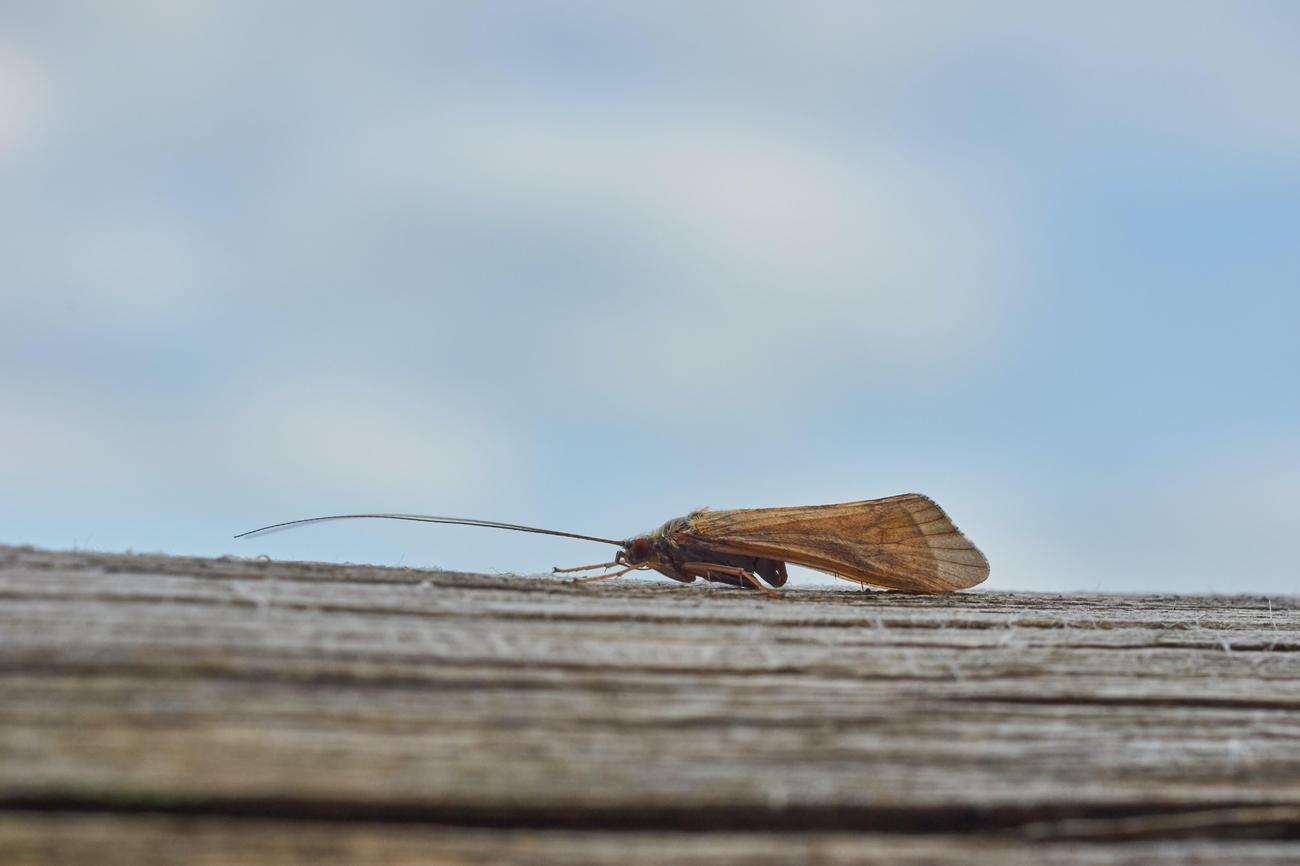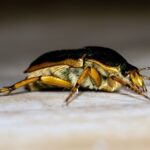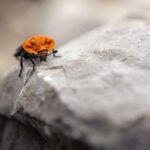Cockroaches: these creepy crawlers have been around for millions of years, surviving and thriving in the most unimaginable conditions. In this article, titled “Hair-Raising Truths: Scary Facts About Cockroaches,” we will delve into two startling revelations about these ancient insects that will leave you in awe. Firstly, did you know that cockroaches are among the oldest creatures on Earth, tracing their lineage back to a time when dinosaurs roamed? That’s right, these resilient pests have withstood the test of time and continue to adapt to modern environments. Secondly, brace yourself for this fact: cockroaches can survive for up to a month without food! Their incredible ability to sustain themselves for such extended periods, even in dire circumstances, is nothing short of astonishing. So buckle up and prepare to be amazed as we uncover the dark and fascinating secrets of these notorious creatures.
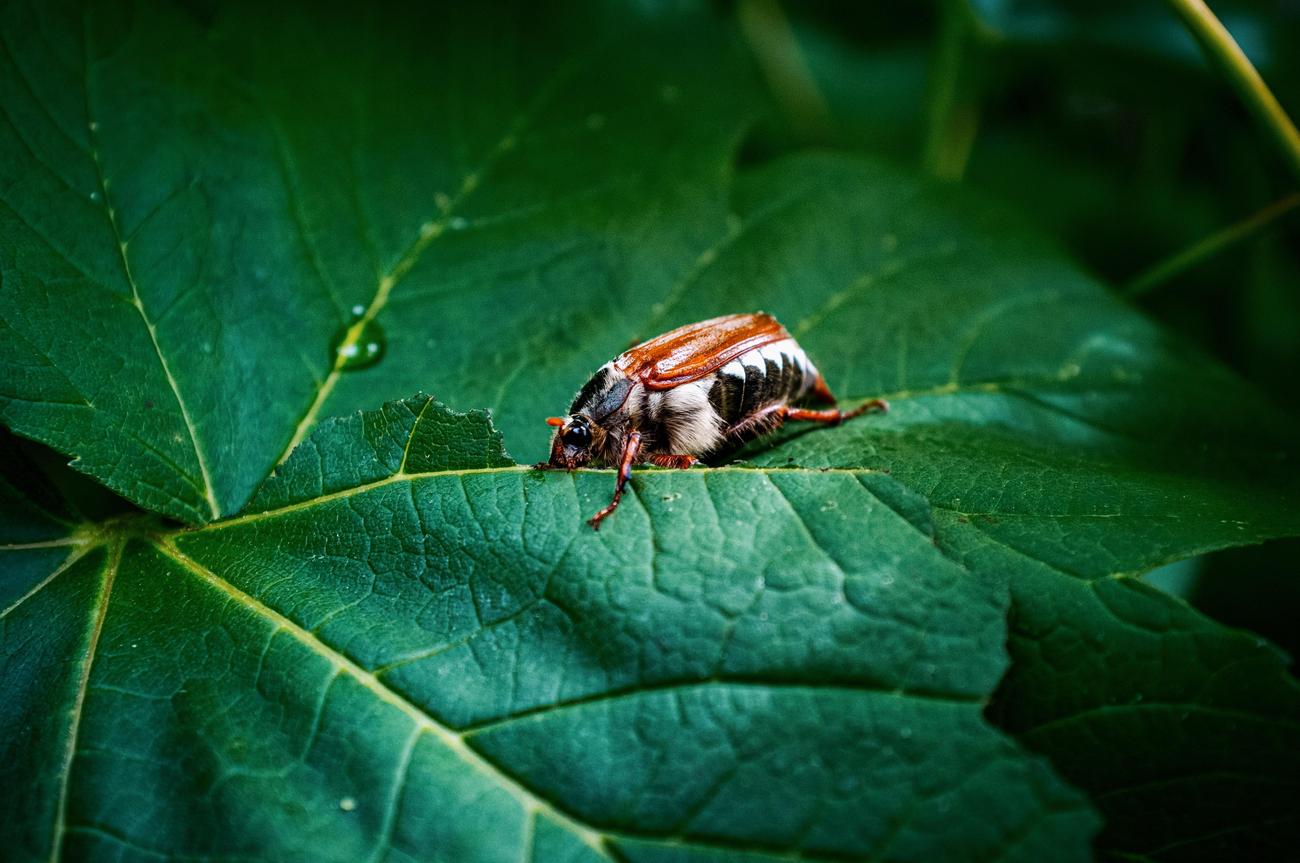
Scary Facts About Cockroaches
Cockroaches: the mere mention of their name is enough to send shivers down your spine. These resilient critters have thrived on Earth for millions of years, and they have developed some truly unsettling survival tactics. In this article, we’ll delve into the hair-raising truths about cockroaches that will leave you with a lasting impression. Brace yourself, because these facts are not for the faint of heart.
1. Cockroaches Are More Than Just Creepy Crawlers
Did you know that cockroaches are considered a dangerous allergen source and asthma trigger? That’s right, these pesky insects can wreak havoc on your respiratory system. Their excrement contains proteins that can cause allergic reactions and even exacerbate asthma symptoms. So, if you’ve been waking up with a stuffy nose or experiencing breathing difficulties, the presence of cockroaches in your home might be to blame.
2. A Potential Carrier of Bacterial Illnesses
It gets even scarier. Cockroaches might carry certain bacteria, such as Salmonella and E. coli, on their bodies. If these bacteria find their way onto your food, they can cause serious illnesses. So, next time you find a cockroach scurrying across your kitchen counter, be sure to sanitize the area thoroughly. It’s better to be safe than sorry when it comes to these disease-carrying creepy crawlies.
3. Survival Against All Odds
One of the most hair-raising facts about cockroaches is their ability to survive in extreme conditions. These resilient creatures can go without food for a whole month! Yes, you read that right. While you’re constantly checking the expiration dates on your groceries, cockroaches can feast on almost anything and keep going strong. They’re not picky eaters; they’ll happily gobble up anything from food scraps to cardboard. Talk about survival instincts!
4. Cannibalistic Cockroaches
Prepare yourself for this spine-chilling truth: cockroaches are cannibals. When resources are scarce, these insects turn on each other. They don’t discriminate – even their own kind can become a meal. It’s a horrifying sight to witness, but it’s just another example of their adaptability and relentless pursuit of survival.
5. Heads Will Roll…Literally
You’re not going to believe this, but cockroaches can survive without their heads. Yes, you heard me right. When a cockroach loses its head, it can still live for several days, sometimes even weeks. How is that possible? Well, their simple nervous system allows their body to continue functioning even without their head. However, rest assured that they ultimately succumb to their headless state. Thankfully, this kind of resilience is unique to cockroaches and not something we have to worry about as humans!
6. Underwater Champions
Imagine being submerged underwater for half an hour and still surviving. Well, that’s just another astonishing feat that cockroaches can accomplish. These creepy crawlies can hold their breath for an impressive 40 minutes and survive underwater for a surprising amount of time. They truly are the aquatic champions of the insect world!
7. Master Evolvers
Did you know that there are roughly 4,600 species of cockroaches around the world? That’s a staggering number! Each species comes with its own set of unique characteristics, including allergens that can cause asthma. These sneaky creatures have honed their survival skills to adapt to various environments and outsmart their predators. It’s no wonder they’ve managed to survive for millions of years!
8. Disease Transmitters…Maybe
While it’s true that cockroaches have the ability to transport disease-causing bacteria, there is little evidence linking them to disease outbreaks in humans. However, it’s still important to take precautions and keep your surroundings clean to minimize any potential risks. Prevention is better than cure when it comes to cockroaches and their potential as disease carriers.
9. Rapid Reproduction
Cockroaches are infamous for their rapid reproductive abilities. In a suitable environment, these resilient insects can reproduce at an alarming rate. A single female cockroach can lay hundreds of eggs in her lifetime, ensuring the perpetuation of their species. It’s a chilling reminder of how difficult it can be to eliminate these persistent pests once they infest your home.
10. Tips for Cockroach Control
Now that we’ve explored these hair-raising truths, it’s important to know how to deal with a cockroach infestation. Maintaining cleanliness, sealing entry points, and using effective pest control methods are crucial in keeping these creepy critters at bay. Don’t let them take over your home – be proactive and show them who’s boss!
In conclusion, cockroaches may be the stuff of nightmares, but understanding their hair-raising truths can help us better deal with these resilient insects. Whether it’s their ability to trigger allergies and asthma, their potential as disease carriers, or their astonishing survival tactics, cockroaches command our attention. So, the next time you spot one scuttling across your floor, you’ll be armed with the knowledge to face these creepy crawlies head-on. Stay vigilant, my friends!
“Cockroaches are not just your average creepy crawlers; they are dangerous allergen sources and potential carriers of harmful bacteria. Their incredible survival skills, including their ability to go without food or even their heads, are enough to send shivers down your spine. With over 4,600 species worldwide and a knack for reproducing quickly, cockroaches are a force to be reckoned with. Remember to maintain cleanliness and use effective pest control methods to keep these resilient pests at bay.”
Scary Facts About Cockroaches
Cockroaches, the infamous insects that send shivers down our spines. They may seem like ordinary pests, but did you know there are some truly creepy facts about these creatures? Prepare to be fascinated and repulsed at the same time. Have you ever wondered what makes roaches so scary? Or perhaps what they are truly afraid of? Well, it turns out there are some weird facts that will surely surprise you. Did you know that roaches can scream? Yes, you read that right. But why would they do that? And don’t even get me started on the idea of touching a cockroach! Can you imagine the horror? But just how nasty are these critters? Are they scared of light? Can they be easily crushed? And most importantly, do they hate us? You’ll find answers to all these questions and more in our article on scary facts about cockroaches. So, if you’re brave enough, click here to uncover the chilling secrets of these creepy crawlies: What is a creepy fact about cockroaches?. Prepare to be amazed, disgusted, and maybe even a little scared.
8.) Cockroaches are Really Old
Did you know that cockroaches have been around for millions of years? It’s true! These creepy crawlers originated more than 280 million years ago and have been thriving ever since. With over 4,000 species worldwide, they have certainly stood the test of time. But what makes cockroaches so old and successful? Let’s dive into the hair-raising truth behind their ancient existence.
Cockroaches are like the surviving dinosaurs of the insect world. They have witnessed the rise and fall of countless species, and yet, they have managed to adapt and persist. Imagine these resilient creatures scuttling around during the Carboniferous period, long before the first dinosaurs roamed the Earth. It’s a truly mind-boggling thought.
But how have cockroaches managed to survive for so long? One reason lies in their remarkable ability to adapt to various environments. These little creatures can withstand extreme heat, cold, and even radiation. They have developed a range of survival tactics that have helped them outlive many other species. It’s as if they possess the ultimate survival guide, written over millions of years, and constantly updated through evolution.
Cockroaches are built to last. Their hard exoskeletons give them a sturdy and resilient armor, protecting them from predators and harsh conditions. This exoskeleton is so tough that it can withstand the weight of a human foot without being crushed. It’s like wearing a suit of armor that provides both strength and flexibility.
The age of cockroaches is not only impressive in itself, but it also reveals a fascinating glimpse into the intricate web of life on our planet. These ancient insects have witnessed the rise and fall of empires, the shifting of continents, and the evolution of countless organisms. They are a living testament to the interconnectedness of all life on Earth.
So, the next time you encounter a cockroach scurrying across your kitchen floor, take a moment to appreciate its ancient lineage. It may be a source of fear and disgust for some, but it also represents millions of years of survival and adaptation. Cockroaches remind us that even in a world of constant change, there are creatures that have endured through time. And that is truly something to marvel at.
The resilience and adaptability of cockroaches have allowed them to survive for millions of years, witnessing the ever-changing world around them. They are a living testament to the power of evolution and the interconnectedness of all life on Earth.
10.) Cockroaches Can Live Without Food for One Month
As we delve into the dark and fascinating realm of cockroach survival, one hair-raising truth stands out: these resilient creatures can survive without food for a month. Yes, you heard that right! A whole month without a single meal. But how can these creepy crawlies manage such an astonishing feat? Let’s uncover the secrets behind their incredible ability to endure hunger.
Cockroaches are like the ultimate survivalists of the insect world. Just like a skilled camper, they know how to conserve and ration their energy when resources are scarce. You see, these pesky pests have a fascinating capacity to save energy, and that’s what enables them to go for extended periods without food. It’s like having built-in energy reserves that they can tap into when needed.
Imagine you’re embarking on a hiking trip and you’re meticulously packing your backpack with all the essentials – food, water, and other supplies. Cockroaches, however, have mastered the art of surviving with limited provisions. They can hibernate, so to speak, when food becomes scarce, drastically reducing their activity levels to conserve energy. It’s almost like they enter a state of deep sleep, known as “torpor,” where they can idly wait for better days to come.
But how long exactly can cockroaches go without their favorite snacks? Well, studies have shown that these creepy critters can endure anywhere from 4.8 to a mind-boggling 50 days without food or water. That’s longer than some of us humans would last in a deserted island scenario! But, in terms of extreme resilience, the female German cockroach reigns supreme. One daring female managed to survive a staggering 50 days without any sustenance. Talk about being an entomological superhero!
The ability of cockroaches to survive for up to a month without food is a testament to their remarkable energy-saving tactics and their ability to adapt to challenging environments.
You may be wondering: how on earth can these little pests go without food for so long? Well, the secret lies in their highly efficient metabolism, which allows them to break down stored fat and glycogen for energy. Picture it this way – cockroaches are like tiny energy power plants, fueling themselves from within their own reserves. It’s a survival strategy that has proven successful for millions of years.
Just like a master of disguise, cockroaches can slip through the cracks and survive in the most inhospitable environments, thanks to their incredible adaptability. Whether it’s the dark corners of your kitchen or the hidden recesses of a crumbling building, they can make themselves at home in the harshest conditions. And that adaptability is what enables them to endure hunger for an astonishingly long time.
Now, you might be asking yourself, “Why should I care about these resilient roaches and their hunger-striking abilities?” Fair question. By understanding their remarkable survival tactics, we can gain valuable insights into the complex nature of life on this planet. Cockroaches have witnessed the rise and fall of countless species, the shifting of continents, and the changing face of our world. Just like the dinosaurs, they are living relics from the past, proof that resilience knows no bounds.
The ability of cockroaches to survive without food for a month showcases their remarkable adaptability and resilience, making them a living testament to the intertwined web of life on Earth.
So the next time you come across one of these skittering insects, instead of just reaching for a can of bug spray, take a moment to appreciate their astounding abilities. While they may induce fear and disgust in some, cockroaches are survivors in every sense of the word. They remind us that even in a world of constant change, there are creatures that have endured through time.
Cockroaches, with their astonishing ability to survive without food for a month, serve as a reminder of the enduring resilience of life in the face of adversity.
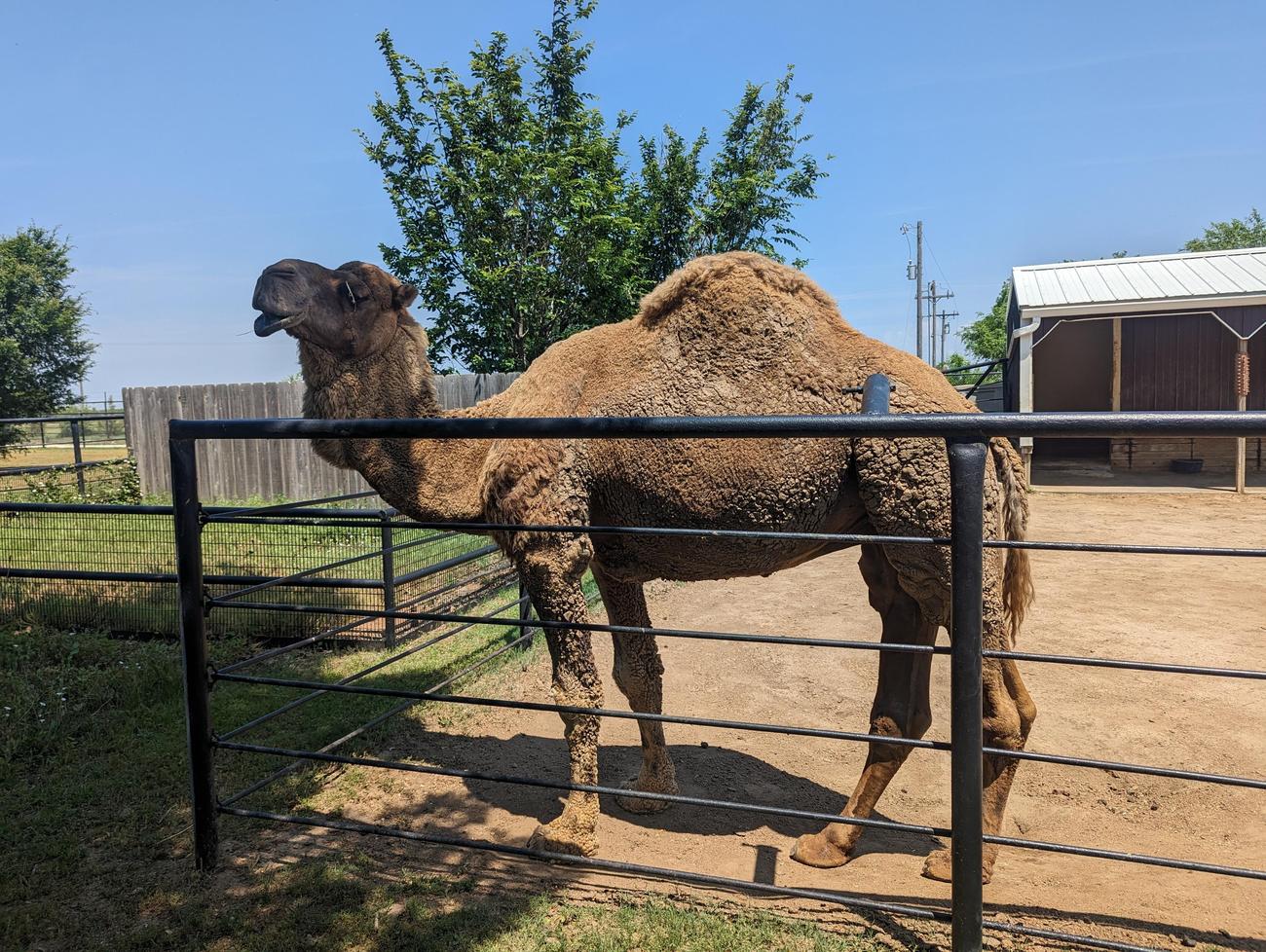
FAQ
Question 1: How old are cockroaches?
Answer 1: Cockroaches originated more than 280 million years ago and have been around for a long time, with some species dating back to the Carboniferous period.
Question 2: Can cockroaches survive without food for long periods of time?
Answer 2: Yes, cockroaches can survive without food for up to one month due to their capacity to save energy.
Question 3: How long can cockroaches live without their heads?
Answer 3: Cockroaches can live without a head because they do not depend on the mouth or head to breathe. They have an open circulatory system, allowing them to survive without a head.
Question 4: Are cockroaches cannibals?
Answer 4: Yes, cockroaches are cannibals and will eat each other.
Question 5: How long can cockroaches hold their breath?
Answer 5: Cockroaches can hold their breath for 40 minutes and can even survive being submerged underwater for half an hour.
